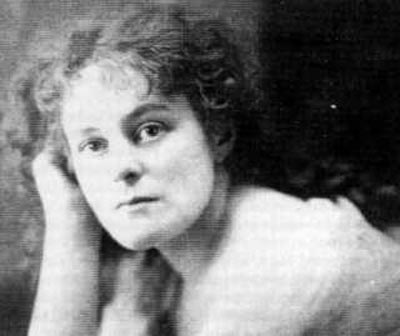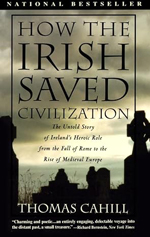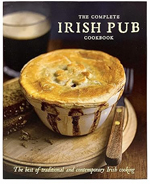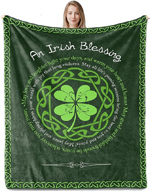Maud Gonne MacBride was nicknamed the "Irish Joan of Arc" because of her activities on behalf of Ireland's independence movement in the early twentieth century. She was also one of the great beauties of her day. She was born in 1866 in England of English parents. Her mother came from a wealthy manufacturing family and her father was a military officer. In 1868, the family moved to a small fishing village north of Dublin Bay when her father was assigned a post in Ireland. Three years later, her mother died of tuberculosis. Her father continued to move with the military, leaving Maud and her younger sister Kathleen in the care of relatives in France. By 1884, Thomas Gonne returned to Dublin. Maud became his hostess, but this was not to last. Thomas contracted typhoid fever and died in 1886. 
Maud Gonne circa 1900
With their inheritance, the two young girls became financially independent and returned to Paris. Maud fell in love with the married French activist, Lucien Millevoye. Her future in politics was shaped by her relationship with him. Together, they had two children, the first of whom died at the age of three, but Maud raised the second, Iseult, as her niece since her relationship with Millevoye had to be kept secret. She met the brilliant writer and poet W. B. Yeats in 1889 and remained his muse throughout his life. He proposed to her twice, but she refused. She married John MacBride, a veteran of the Boer War and Irish rebel, and converted to Catholicism in 1903. The marriage was a disaster. MacBride was abusive when he was drunk and had trouble coping with his cosmopolitan wife. They separated shortly after she gave birth to their son Sean. MacBride was executed for his part in the Easter Rising of 1916. Maud was then free to work on the part of Irish nationalism. She herself was imprisoned the first time in 1918 and released later for ill health to prevent the Irish from creating another martyr. She worked for prison reform. She was active in social causes, collecting food for poor children and for families of striking workers. Maud was an influential voice in Irish politics for over 40 years. Her son Sean became an IRA chief-of-staff and a cabinet minister. When the Republic of Ireland was established in 1949, she was one of the great nationalists who was invited to the celebration. She died of heart disease in 1953 after having written her autobiography, A servant of the queen: Reminiscences She had led republican protests in Dublin in the 1890s and had lectured and collected money for the Irish cause in France, England, Scotland and the United States. She founded a republican and suffragette women's society called the Daughters of Ireland and published a newspaper in France. Quote: "The English may batter us to pieces, but they will never succeed in breaking our spirit."
Back to Top
Back to Cleveland Irish | 











